#more hamlet
Explore tagged Tumblr posts
Text
I really do think that it’s good for the soul to be unironically pretentious about something. Not in a gatekeeping kind of way but in a “yes, it really is that deep and I would love to enthusiastically and passionately explain why” kind of way.
#mine is shakespeare#hamlet#specifically#although i will defend#romeo and juliet#to the ends of the earth#also#the iliad#the odyssey#literature#writing#classics#although it can be so much more than just books#i also think that I would defend the story of kingdom hearts like this as well#probably homestuck too#completely unironically#birdy chirps
37K notes
·
View notes
Text
i guess ten being considered the universe's hottest dude with women falling over themselves to kiss him is kinda crazy to me bc in my mind he is fundamentally a little wretched twig of a guy. like a drowned kitten or perhaps rat to me . i'm realizing that the spirit of donna noble is possessing me as i write this post
#like reigen mob psycho (just some dude in a suit) (asexual tumblr sexyman) (sopping wet pathetic beast)#dr who#tenth doctor#b4 anyone asks 'but aq aren't you aroace' yes i am. however here are some david tennant roles that i believe deserve the sexyman title more#1) peter vincent. 2) benedick. 3) richard ii. 4) hamlet. 5) crowley. and finally 6) the 14th doctor#10 era
3K notes
·
View notes
Text
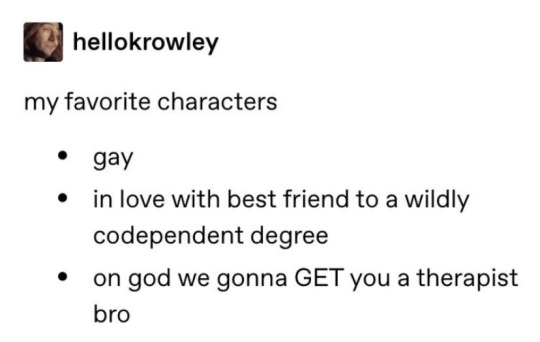
tag that classic lit character
#talking to the void#the amount of characters i could apply this to is hilarious#hamlet#horatio#dorian gray#basil hallward#mercutio escalus#tybalt capulet#victor frankenstein#henry clerval#could also probably be applied to ivan and gerasim#but that man needs a good doctor more than therapy i think
550 notes
·
View notes
Text

@moonlarked I love these additions because I haven’t spent nearly enough time pondering the various ways Gertrude’s actions could be interpreted, and “behaving tacitly under the watchful eye of her new husband” is one that had passed by me until now.
Suddenly the world of “Gertrude is a brilliant chess player (a powerful, beautiful woman) who sees what Hamlet sees but has spent her life learning to patiently play the game of nobility” opens up and starkly contrasts her son’s privilege to emotionally react whenever he senses injustice. And it makes sense, given her class and the time period (generally 14th century, I believe?). It also makes her death even MORE tragic because she played well for so long and for what? Her son has seen through his uncle’s poor veneer enough to understand he’s using convention to get away with literal murder, but Gertrude was too good at measuring her responses (possibly for her whole life) such that her own son didn’t know her well enough to understand her response at the play was a necessary bluff? Delicious. T r a g i c.
They are then two opposing forces on the same side of a conflict: the forces of subtlety and reactivity. And those are not forces that inherently communicate well. With this in mind, I want to go back and reread their confrontation scene in her bedroom. (Which btw has NEVER had incest undertones when I’ve read it before wtf is wrong with people)
Also: in discussing Hamlet’s sanity — at what point is it human to incorrectly jump to conclusions based on personal experience and at what point is it insane to believe your conclusion can be the only correct one?
Let’s talk about “the lady doth protest too much,” because it’s a phrase I heard and used before I knew the actual context. And now, after I’ve finally gotten the context, I find myself continually thinking about its intent.
When I first heard it, (and pretty much exclusively how I still hear it) it’s been used to mean “it is suspicious that this person is denying something waaaay too hard.”
Ex. “The PR people keep insisting this chemical won’t harm the environment. They doth protest too much, methinks.”
And I never questioned that usage, because it makes sense.
Then I read Hamlet, and found that the line comes from a scene wherein Hamlet is trying to trick the people around him into revealing their guilt by having actors perform a thinly veiled parody play of his current predicament as he sees it.
In his actors’ play, the character that parallels his mother is solicited by her husband’s killer — who is also her brother-in-law. And the actress in the show denies her solicitor several times before succumbing to him.
When Hamlet turns to his mother and asks what she thinks of the show so far, he’s looking for her to see herself in the part. To react, or provide some kind of recognition of what she’s done. To condemn the clearly uncomfortable situation her character is in. But all she says is
“The lady doth protest too much, methinks.”
And I LOVE analyzing that, because my personal takeaway is like.
You know how you can write a whole poem or story about someone who’s wronged you, and they’ll read it and not see themselves in it? Yeah. (If you don’t know: this happens. A lot.)
So, whether or not she saw herself in the character onstage, My interpretation is that Gertrude (Hamlet’s mom) is revealing that her decision to marry Claudius (Hamlet’s uncle) was not a tearful and tormented decision made under coercion and duress. (Which is how Hamlet has experienced seemingly every major decision in his own life, and explains why he’d find this lack of passionate waffling to be offensive.) For better or for worse she’s revealing she just… didn’t say no to her brother-in-law.
And from there you can get into the why behind all that and her motivations and whatnot but that’s beyond the scope of what I’m trying to get into here.
“The lady doth protest too much” doesn’t read to me like condemnation of insincere delivery. Not exactly. The difference is kinda subtle, I guess.
A more parallel usage of the phrase is difficult to imagine, then, because there is some amount of self condemnation that it should invoke.
Me: “I baked you these cookies”
Them: “I shouldn’t; I’m watching my figure”
Me, knowing full well I ate five of the cookies before boxing the rest up to give: “The lady doth protest too much. Take the cookies.”
#is hamlet insane?#buddy — are we all?#at least a little bit?#and don’t even get me started on pelonius theories#god I love this show#hamlet#more hamlet#Gertrude#Claudius#subtlety#reactivity#tragedy#insanity#jumping to conclusions#shakespeare#analysis is fun#please hit me with more#time for a reread methinks
27 notes
·
View notes
Text



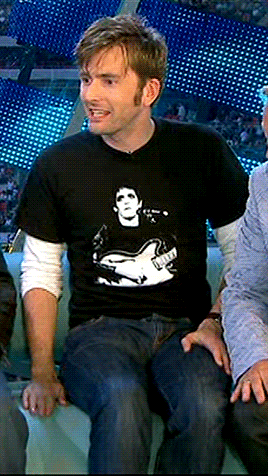





David Tennant gently stroking things
#...such as himself#the title is more salacious than the gifset actually is#david tennant#gently stroking things#doctor who#comic relief#good omens#(due to crowley's hair)#convention appearances#last leg#late late show#planet word#hamlet#live earth#bless him#he has such lovely hands#(and the face ain't bad either)#stuff i posted
382 notes
·
View notes
Text
i feel the need to remind everyone that Damen’s literally one of the smartest and most well-educated characters in the series. He’s extremely well-read and knowledgeable about military tactics and strategy, which if you didn’t know also includes a huge depth of history knowledge, and his talent comes from both education and years of experience. He’s smart enough to know geography and terrain information of an area he hasn’t needed to have information on in seven years, and even then, the lands they are talking about were in mainland Vere, not Delpha, so his studies were his own initiative. he has favorite poems! HE ENJOYED DEBATING OBSCURE PHILOSOPHY WITH HESTON!!! like y’all Damen is just as intelligent as Laurent, it’s just that Laurent’s intelligence is about manipulation and chess and Damen’s just a nerd.
(also people are gonna be coming for me for this one but i think Damen likes books and libraries a lot more than Laurent ever did)
#i would bet my college tuition that Damen loves analyzing and debating about books#‘damen wouldn’t understand hamlet’ stfu he would eat that shit up#side note tho damen would love hamlet it’s a lot like his and laurent’s story#there’s definitely more that i’m not thinking of right now#but even on my first read of the series there were so many scenes where Damen is extremely competent and clearly educated and trained#i don’t understand all the fic writers that make damen some himbo golden retriever and laurent this sarcastic girlboss#damen#capri#captive prince#damen of akielos#damianos of akielos
688 notes
·
View notes
Text
I’d like to propose a performance of Hamlet in which the audience is addressed, looked at, and treated as if they were there but ONLY by characters who have gone mad.
in Act 2, when Hamlet’s pretending to go mad, while in the presence of Polonius and others, he sort of pretends to look at the audience, but always glancing over, looking sort of in the wrong direction, putting on a show for the only eyes he thinks are watching. When he’s alone and doing his soliloquies, it’s clear that he’s talking to himself, even though we’re listening in.
And it continues this way until Act 3 Scene 4, when Hamlet runs Polonius through with the sword. For a moment after the deed is done, there’s a shocked silence on the stage. As Hamlet goes to examine the body, he falters, slightly, as he becomes aware of just how many eyes are on him. And slowly; he looks at us, and through the rest of the scene his attention is torn between the audience and his mother, until the ghost appears (perhaps in the audience as well) and he’s… sort of put back on track. But from then on, all his soliloquies, asides, he begins to talk to us, in the audience.
And we notice the change, sure, but we don’t really get what it means, not until Ophelia goes mad, and while onstage she begins to give audience members flowers, to talk to them as the others call her crazy. And at that point most of us can make the connection.
From then until the play is over, Hamlet can’t fully ignore us. Every other character will, and does (besides maybe the gravediggers if you wanted to include anyone else), but we’re ever present in his sight. As he dies, we’re the ones he refers to when he says ‘you that look pale and tremble at this chance, that are but mutes or audience to this act’
#hamlet#shakespeare#am i a hamlet goes a little bit mad truther? perhaps#i just love to explore motifs of insanity in various forms of media#and i have some more opinions on how I’d adapt this to film
466 notes
·
View notes
Text
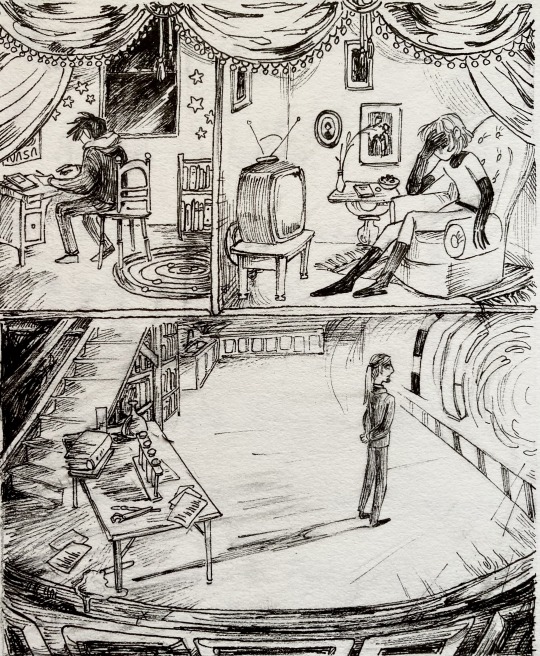
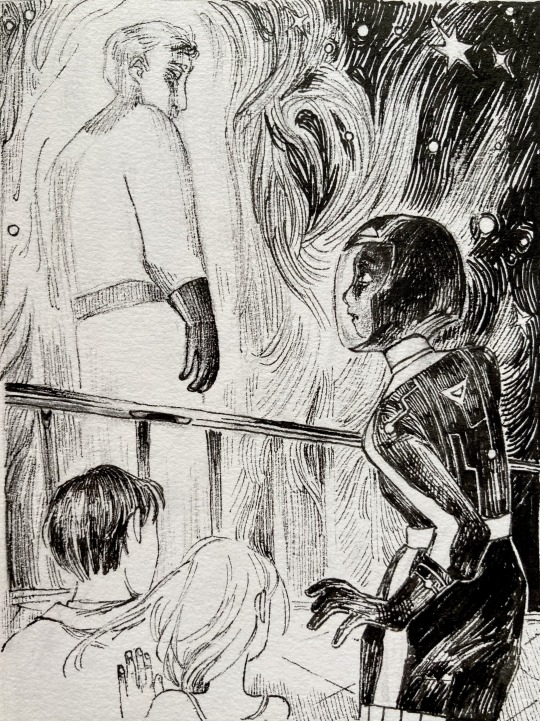
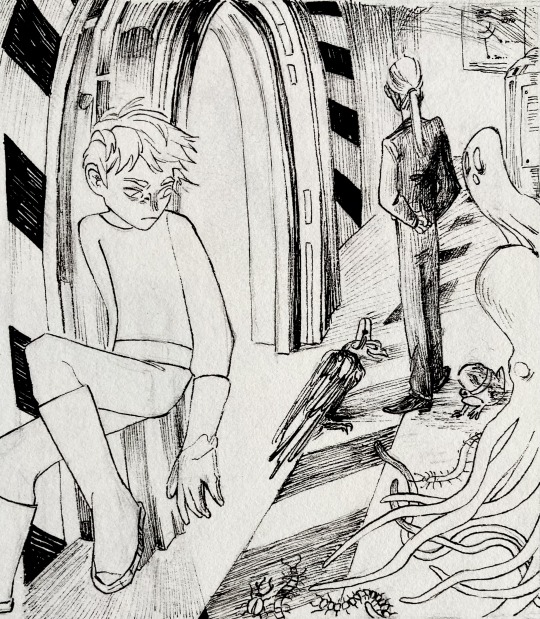

I’m so excited to finally show the illustrations I did for this year’s invisobang!
These are from the first chapter of @wingedflight’s story, Something Rotten
It’s based around Hamlet, and it is so cool and tragic to read the characters in their roles, please go check it out!
#I’ll post more art as the chapters come out#and then at the end ill probably post them again all together#I wanted to do more of an old fashioned illustrated look for this year#did i pull it off?#probably not#but i still like how they came out#as i said before#i was excited for this story because i was a huge emo/nerd for hamlet when i was younger#so this was fun#danny phantom#invisobang 2023#danny fenton#jack fenton#red huntress#my art#dp
746 notes
·
View notes
Text
(watching Hamlet for the first time) Oh, so that's where that quote is from. Oh, so that's where that quote is from. Oh, so that's where that quote is from. Oh, so tha
#I did know a few of them already but there's so many!!#to thine own self be true murder most foul more things in heaven and earth etc. etc. and I'm not even a third of the way in yet#hamlet#shakespeare
1K notes
·
View notes
Text
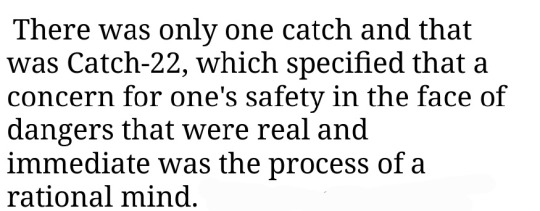




Method and Madness
Catch-22 // M*A*S*H // Hamlet // The Physicists
#mash#m*a*s*h#catch-22#catch 22#hamlet#the physicists#Dürrenmatt#there are a lot more scenes I could have added but I wanted to keep it concise
370 notes
·
View notes
Text








shakespeare themed blinkies made with blinkies.cafe (insp.)
447 notes
·
View notes
Note
heyyy scrolling through your hamlet stuff and i saw a post bout laertes and fortinbras and hamlet and horatio with the like face shapes (ex. hamlet being pizzafaced, horatio having a squarish face, laertes rocking a rhombus, etc.) so i was wondering what Ophelia's shape would be
i get that you're more focused on oc's right now but i would still love to see it :)
circle! but she starts to incorporate sharper elements into her design later in the play.

this way she starts to mirror hamlet, who's also perceived as volatile and dangerous as a result of mismanaged grief.
#hamlet#ophelia#did a bit of a redesign#taking notes from kozintsev's version of ophelia where she ties her hair up#the change in act 4 feels more drastic bc she'd let her hair down
394 notes
·
View notes
Text
obviously the interpretation of the ghost as visibly suffering and in pain and scaring hamlet bc he never saw his father this way in life + later fueling his fear of life after death, has a Lot of basis in the text. HOWEVER the version that will always hit me more emotionally is the ghost being commanding and frightening just as he was in life and still, even beyond the grave, instilling hamlet with intense guilt for simply existing
#hamlet#ws#a very 'i need to save my father' vs 'i need to stop being a disappointment to my father' sort of situation#the latter is also more emotionally complex to me bc hamlet still deeply loves his father but that's not the only thing driving him
359 notes
·
View notes
Text
i said i was going to arrange a list of my favorite articles/criticism about shakespeare, so here’s my first little roundup! obligatory disclaimer that i don’t necessarily agree with or endorse every single point of view in each word of these articles, but they scratch my brain. will add to this list as i continue reading, and feel free to add your own favorites in the reblogs! :]
essays
Is Shakespeare For Everyone? by Austin Tichenor (a basic examination of that question)
Interrogating the Shakespeare System by Madeline Sayet (counterpoint/parallel to the above; on Shakespeare’s place in, and status as, imperialism)
Shakespeare in the Bush by Laura Bohannan (also a good parallel to the above; on whether Shakespeare is really culturally “universal”)
The Unified Theory of Ophelia: On Women, Writing, and Mental Illness ("I was trying to make sense of the different ways men and women related to Ophelia. Women seemed to invoke her like a patron saint; men seemed mostly interested in fetishizing her flowery, waterlogged corpse.”)
Hamlet Is a Suicide Text—It’s Time to Teach It Like One (on teaching shakespeare plays about suicide to high schoolers)
Commuting With Shylock by Dara Horn (on listening to MoV with a ten-year-old son, as modern jewish people, to look at that eternal question of Is This Play Antisemitic?)
All That Glisters is Not Gold (NPR episode, on whether it’s possible to perform othello, taming of the shrew, & merchant to do good instead of harm)
academic articles
the Norton Shakespeare’s intro to the Merchant of Venice (apologies about the highlights here; they are not mine; i scanned this from my rented copy)
the Norton Shakespeare’s intro to Henry the Fourth part 1 (and apologies for the angled page scans on this one; see above)
Richard II: A Modern Perspective by Harry Berger Jr (this is the article that made me understand richard ii)
Hamlet’s Older Brother (“Hamlet and Prince Hal are in the same situation, the distinction resting roughly on the difference between the problem of killing a king and the problem of becoming one. ... Hamlet is literature’s Mona Lisa, and Hal is the preliminary study for it.”)
Egyptian Queens and Male Reviewers: Sexist Attitudes in Antony & Cleopatra Criticism (about more than just reviewers; my favorite deconstruction of shakespeare’s cleopatra in general)
Strange Flesh: Antony and Cleopatra and the Story of the Dissolving Warrior (“If Troilus and Cressida is [Shakespeare’s] vision of a world in which masculinity must be enacted in order to exist, Antony and Cleopatra is his vision of a world in which masculinity not only must be enacted, but simply cannot be enacted, his vision of a world in which this particular performance has broken down.”)
misc
Elegy of Fortinbras by Zbigniew Herbert (poem that makes me fucking insane)
Dirtbag Henry IV (what it sounds like.)
Cleopatra and Antony by Linda Bamber (what if a&c... was good.)
#essays/academic articles is sort of a false dichotomy but i wanted to separate these into More Casual versus More Academic. so.#misc category exists because. i like those two things so much. not at all for the same reasons#max.txt#misc#hamlet#merchant of venice#henry iv#richard ii#antony and cleopatra#there we are.
2K notes
·
View notes
Text




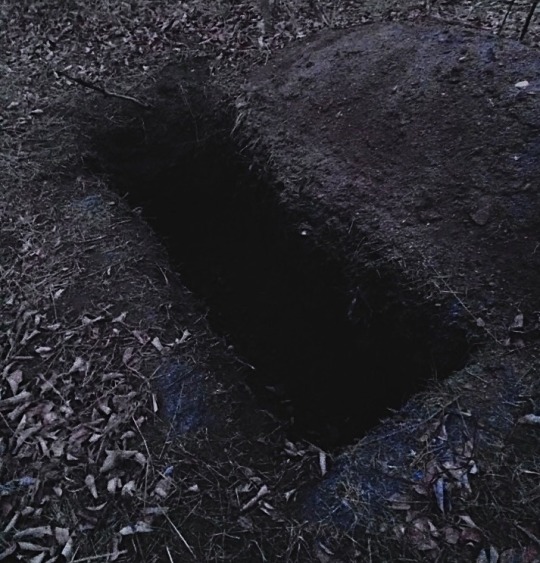
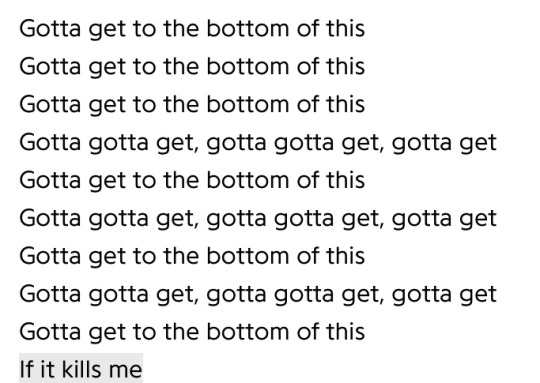


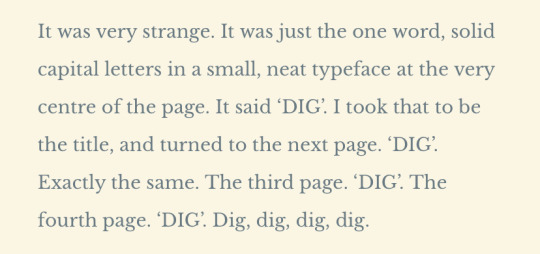

Digging too deep:
Philosophical obsession to the point of self destruction
[Image description: A collage consisting of 10 different photographs and quotes, all related to digging and holes. From top to bottom:
A wikipedia headline that says “Law of Holes”.
A close up of a shovel, digging into loose dirt.
An excerpt from a wikipedia article about the law of holes: The law of holes or the first law of holes, is an adage which states: "if you find yourself in a hole, stop digging." It is used as a metaphor, warning that when in an untenable position, it is best to stop making the situation worse.”
A lyrics excerpt from ‘The Song With Five Names’ by Will Wood: You can break a shovel when you break new ground / You dig dirt up when you dig deep down / You should know better than that by now / It's not profound to know that you could never know!
A blurry photograph of a dark rectangular hole in the ground, seemingly a grave. The hole is so dark the bottom of it isn’t visible. Besides the hole there is a pile of dirt.
A lyrics excerpt from ‘Hand Me My Shovel, I’m Going In!’ by Will Wood and The Tapeworms: Gotta get to the bottom of this/ Gotta get to the bottom of this / Gotta get to the bottom of this / Gotta gotta get, gotta gotta get, gotta get / Gotta get to the bottom of this / Gotta gotta get, gotta gotta get, gotta get / Gotta get to the bottom of this / Gotta gotta get, gotta gotta get, gotta get / Gotta get to the bottom of this / If it kills me
An excerpt from a wikipedia article about the law of holes: The second law of holes is commonly known as: "when you stop digging, you are still in a hole."
A photograph of a deep round hole. There’s a ladder going down into it and the bottom of the hole isn’t visible.
An excerpt from the transcript of episode 88 of The Magnus Archives: It was very strange. It was just the one word, solid capital letters in a small, neat typeface at the very centre of the page. It said ‘DIG’. I took that to be the title, and turned to the next page. ‘DIG’. Exactly the same. The third page. ‘DIG’. The fourth page. ‘DIG’. Dig, dig, dig, dig.
A lyrics excerpt from ‘Hand Me My Shovel, I’m Going In!’ by Will Wood and The Tapeworms: Looking down I could say heaven sent me / Hand me my shovel, I’m going in!
/end ID]
[‘Law of Holes’ - Wikipedia, ‘The Song with Five Names, a.k.a. Soapbox Tao, a.k.a. Checkmate Atheists! a.k.a. Neospace Government, a.k.a. You Can Never Know’ - Will Wood and the Tapeworms, ‘Hand Me My Shovel, I’m Going In!’ - Will Wood and the Tapeworms, MAG 88 ‘Dig’ - The Magnus Archives]
#web weaving#web weave#the buried#the magnus archives#will wood#paralells#spilled thoughts#horror#anyways- I’ve been kinda deeply obsessed about how academic and philosophical obsessions can lead to self destruction#in the form of overthinking and over analysis#never done web weaving before but I really enjoyed this!!#(this is deeply inspired by ‘Self Ish’ by will wood if you couldn’t tell)#I also had a really nice hamlet quote I wanted in this but alas the picture limit#(That and an amazing devil lyrics)#but also don’t take this too seriously#it’s more of a musing than anything actually ‘artistic’#more of a macaroni and paint collage than a poem yk?#all the photos are just stockphotos I’ve edited slightly btw#Maria’s stuff#mariacore#cw claustrophobia#tw claustrophobia#tw death#tw self destructive behavior#tw self sabotage#let me know if I should tag anything else!#image described#(God I hope it was the right choice to add all the hand me my shovel lyrics)
683 notes
·
View notes
Text








Zooming in on David Tennant - Part Ten
Please see the [ Zooming on Tennant Series ] tag for more
#I put 2 super-slow zooms in the middle but I promise they're moving#and the two that start with him looking over his shoulder both gut-punch me#forever grateful that david returning to doctor who#gave me so many more zooms to add to the collection#david tennant#doctor who#good omens#around the world in 80 days#atwi80d#hamlet#the escape artist#zooming on tennant series#stuff i posted#dw 60th#fourteenth doctor#tenth doctor#crowley and aziraphale
230 notes
·
View notes